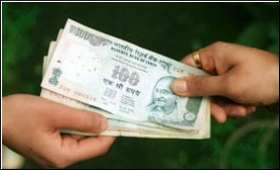|

|
SME financing in the current economic scenario
|
|

|
|
| Top Stories |
 |
|
|
|
Amitabh Verma | 03 Apr, 2014
Small and Medium Enterprises (SMEs) are the engine of growth for any economy. They are the first to run-up when the going is good and often amongst the first to feel the stress when the markets turn the heat on them. While SMEs have several challenges to deal with (management skills, bandwidth, talent, dependency on buyers / suppliers etc), the key challenge often is access to "funding" which can insulate them from these.
SMEs typically do not have "deep" pockets. This makes them more vulnerable to shocks from the market. As liquidity gets tighter in the current economic scenario, the cost of funding (even when it is available) also tends to go up, adding to the strain. However, adequate and timely funding is the life blood for SMEs and is often the key differentiator which can take these SMEs to the big league.
The key challenges for an institution or a bank is to find the "right" SMEs who can manage the stresses of the current tough environment. There is appetite for financing the good SMEs but selection becomes a deterrent. There is a need to bring in Risk Management tools which study the entire eco-system of the SME and not merely its financials. So, the fundamental question which comes back to the table is what are the key risks and how do we mitigate them?
Some key aspects of assessment which could provide a holistic view would include:
Getting to understand the Promoter: SMEs are typically promoter driven. Understanding the knowledge, experience and integrity of the promoter is key to understanding how the company is likely to behave.
Succession Plan: Once we know the promoter and we are comfortable, we need to be sure that the best laid plans would be executed, should there be any disruption in business. A well articulated succession plan helps the SME remain a "going concern" even in turbulent times.
Market feedback: Does the market think the company as trustworthy? It makes sense to do as many buyer/ suppliers /stakeholders checks and feedback as possible because it gives a 360 degree view on the client.
Business Model: We also now need to understand what exactly is the SME doing? Is the business model viable and sustainable? Can the SMEs USP help them grow?
Dependency: Is the SME dependent on the large industry players? Are there any likely implications? Can these be mitigated?
Competitive and Market scan: How is competition reacting? Are bigger players likely to crowd out the SME OR would the SME be able to carve out a place for themselves?
Once we have gone beyond the financials to look at the SME holistically, the decision on picking the "winners" become a lot simpler. SMEs need funds and so do the financial institutions/ banks need to lend and a win-win synergy can be created.
* The author - Mr. Amitabh Verma is SME Head of DBS Bank, India. The views expressed by the author in this article are his/ her own and do not necessarily reflect the views of SME Times.
|
|
|
| |
|
|
|
|
|
|
|
MSME loan
G.Ganapathy LAGHUUDYOGH BHARATHI | Sun May 18 13:17:58 2014
The bank interested in balance sheet not interested in seeing the transaction no
bank is giving loan on cgtmse scheme.The credit limit has to enhance Rs. 5 crore also the MSME sector should give private equity or venture capital should try to support the MSME sector.

|
|
|
|
|
|
|
| |
| Customs Exchange Rates |
| Currency |
Import |
Export |
US Dollar
|
84.35
|
82.60 |
UK Pound
|
106.35
|
102.90 |
Euro
|
92.50
|
89.35 |
| Japanese
Yen |
55.05 |
53.40 |
| As on 12 Oct, 2024 |
|
|
| Daily Poll |
 |
 |
| Do you think Indian businesses will be negatively affected by Trump's America First Policy? |
|
|
|
|
|
| Commented Stories |
 |
|
|
|
|
|
| |
|